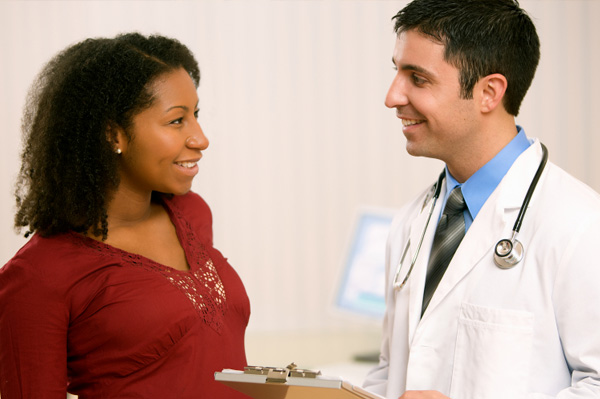Nothing can quite compare to the joyous moment of giving birth. All of the waiting, planning, decorating, naming, hoping, wishing all comes to fruition when you're holding your bundle of love. It's all going to be perfect, just like you imagined in your pregnancy daydreams. The daydreams where you're rocking in your sweet baby and singing songs and he or she coos. But along with all the joy, comes the stress of being completely responsible for a human being that no one gave you a manual for. It can be an extremely overwhelming time. Whether the adjustment is that you had your first child and have never had any real experience with a newborn, or it's your fifth and the stress of trying to keep up with everyone and everything can feel like it's too much to handle. These conflicting emotions of how you feel, how you
think you
should feel and how everyone else feels about the birth, along with out-of-whack hormones can really do a number on you. Baby blues, Post Partum Depression, or Post Partum psychosis my result from the extreme stress, and it is far more common than given credit for!
So, what exactly is Post Partum Depression [PPD]?There are three types of PPD: Baby Blues, Post-Partum Depression and Post Partum Psychosis:
· The baby blues happen in many women in the days right after childbirth. A new mother can have sudden mood swings, such as feeling very happy and then feeling very sad. She may cry for no reason and can feel impatient, irritable, restless, anxious, lonely, and sad. The baby blues may last only a few hours or as long as 1 to 2 weeks after delivery. The baby blues do not always require treatment from a health care provider. Often, joining a support group of new moms or talking with other moms helps.
· Postpartum depression (PPD) can happen a few days or even months after childbirth. PPD can happen after the birth of any child, not just the first child. A woman can have feelings similar to the baby blues - sadness, despair, anxiety, irritability - but she feels them much more strongly than she would with the baby blues. PPD often keeps a woman from doing the things she needs to do every day. When a woman's ability to function is affected, this is a sure sign that she needs to see her health care provider right away. If a woman does not get treatment for PPD, symptoms can get worse and last for as long as 1 year. While PPD is a serious condition, it can be treated with medication and counseling.
· Postpartum psychosis is a very serious mental illness that can affect new mothers. This illness can happen quickly, often within the first 3 months after childbirth. Women can lose touch with reality, often having auditory hallucinations (hearing things that aren't actually happening, like a person talking) and delusions (seeing things differently from what they are). Visual hallucinations (seeing things that aren't there) are less common. Other symptoms include insomnia (not being able to sleep), feeling agitated (unsettled) and angry and strange feelings and behaviors. Women who have postpartum psychosis need treatment right away and almost always need medication. Sometimes women are put into the hospital because they are at risk for hurting themselves or someone else.
What are some Signs & Symptoms of PPD?
· Feeling restless or irritable.
· Feeling sad, depressed or crying a lot.
· Having no energy.
· Having headaches, chest pains, heart palpitations (the heart being fast and feeling like it is skipping beats), numbness, or hyperventilation (fast and shallow breathing).
· Not being able to sleep or being very tired, or both.
· Not being able to eat and weight loss.
· Overeating and weight gain.
· Trouble focusing, remembering, or making decisions.
· Being overly worried about the baby.
· Not having any interest in the baby.
· Feeling worthless and guilty.
· Being afraid of hurting the baby or yourself.
· No interest or pleasure in activities, including sex.
Who is at risk for PPD? Any woman who has given birth in the past few months regardless of race or ethnic background. Sometimes PPD sets in quickly after birth and sometimes it's months later. It can happen after your first, second or seventh child. If you have had a past history of depression, it is always a good idea to tell your physician ahead of time. I know that with my first, told my doctor that I had been treated for depression as a teen and young adult. Telling her made her aware that I could develop PPD, so she would ask how I was doing after birth at different intervals thereafter.
How is PPD treated? Postpartum depression (PPD) is treatable and it will go away. If you suspect your are suffering from it, there shouldn't be any shame is asking for help. The type of treatment will depend on how severe the PPD is. PPD can be treated with medication [antidepressants] and psychotherapy. It is also advisable to find and attend a support group to talk with other women who are going through the same thing. Because even though this issue is still being swept under the rug,
each year approximately
950,000 women are suffering postpartum depression, and many are not getting the help they need. If you are breastfeeding, talk with your physician about taking antidepressants. Some of these drugs affect breast milk and should not be used, but your doctor can recommend other options.
How Can I Better take Care of Myself? There are some other things that can help as well as taking meds and seeking therapy:
· Get good, old-fashioned rest. If it's your first you can try to nap when the baby naps or see if a friend or family member can help watch the baby while you catch some Z's.
· Stop putting pressure on yourself to do everything. Do as much as you can and leave the rest! Ask for help with household chores and nighttime feedings. I know that when you're anxious, this is easier said than done, but let the house go! Now is the time to take care of yourself and your baby. Hire a neighbor girl to come clean the house if you need to.
· Talk to your husband, partner, family, and friends about how you are feeling.
· Do not spend a lot of time alone. Get dressed and leave the house - run an errand or take a short walk. Also easier said than done when you are recovering and have a new baby, but a short walk outside listening to your iPod WILL help.
· Spend time alone with your husband or partner. Get away from the stress. Even if you get out alone for a quick McDonalds run, it will help. Or grab a redbox and have a "date night" at home together when baby is asleep.
· Talk to your health care provider about medical treatment. Do not be shy about telling them your concerns. Not all health care providers know how to tell if you have PPD. Ask for a referral to a mental health professional who specializes in treating depression. Bottom line: Tell them what is going on and how you feel. You don't have to excuse how you feel because of "pregnancy hormones" or the stress of a new baby. If you're an anxious first time mom like I was and can't sleep because you're so worried about if your baby is breathing or not, ask your doctor for help. I could have felt a lot better if I'd recieved the help I needed.
· Talk with other mothers, so you can learn from their experiences.
· Join a support group for women with PPD. Call a local hotline or look in your telephone book for information and services.
Always remember that you are not alone. Many women go through this and anyone is at risk. Don't ignore how you feel, there is no shame in getting help. The sooner you realize you need the help, the sooner you can get back to feeling better. Happy, healthy mommy makes happy, healthy baby! [or at lease better able to handle the colic phase...]
Read more...












































